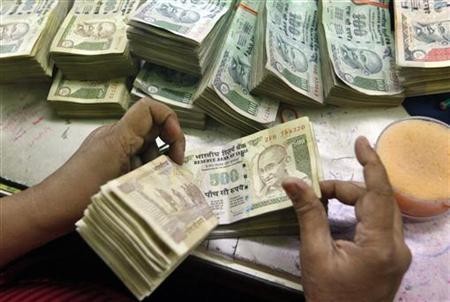
In what could be seen as a repercussion of Food Security Bill passed by the parliament on Monday, the Indian rupee touched a new low of 65.93 to the dollar on Tuesday, breaching the 65.56 record witnessed last week.
The fall of rupee on Tuesday happened after gaining three straight sessions with the hope that the government would come up with measures to attract foreign capital flow to fund the current account deficit.
However, the clearance of the ambitious Food Security Bill by Lok Sabha on Monday might have triggered further fall of Indian currency on Tuesday. The proposed bill, which aims at selling foodgrains at a highly subsidised price to 67 percent of the country's population, would cost about ₹1.3 lakh crore to the state exchequer.
Analysts are of the opinion that Food Security Bill would widen the current account deficit and cause inflation.
"The Food Security Bill is the key reason for the rupee's fall today. It would open floodgates for (credit) ratings downgrades, if the fiscal deficit is not reined in," Ashtosh Raina, head of foreign exchange trading at HDFC Bank, told Reuters.
Siddhartha Sanyal, chief India economist with Barclays Capital also feels that "food bill will be a strain on the government finances."
However, finance minister P Chidambaram insisted that the government can spend for the poor section of the population despite concerns on current account deficit and added that the government would stick to its fiscal deficit target for the year.
"After providing for the food security bill, we will remain within the limit I have set for myself in the budget," Chidambaram told reporters on Tuesday.
The partially convertible rupee has fallen by around 15 percent this year despite attempts by the government and the Reserve Bank of India (RBI) trying to maintain stability. It may fall even further if the government announces more populist programmes like the food security bill ahead of the Lok Sabha Elections next year. It will be a herculean task for the government to contain the fiscal deficit to 4.8 percent of GDP for the current fiscal year.
(With Inputs from Reuters)

















